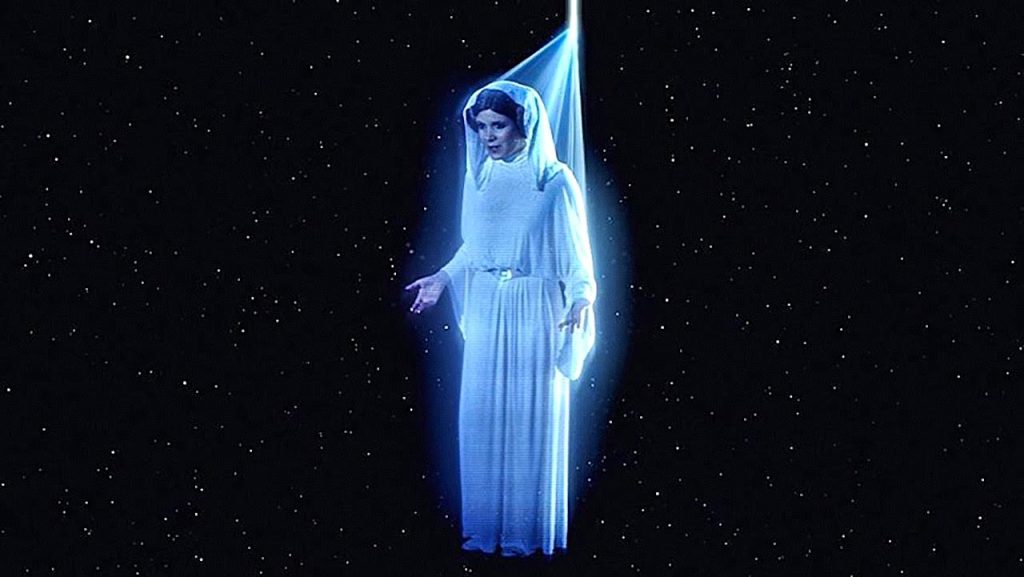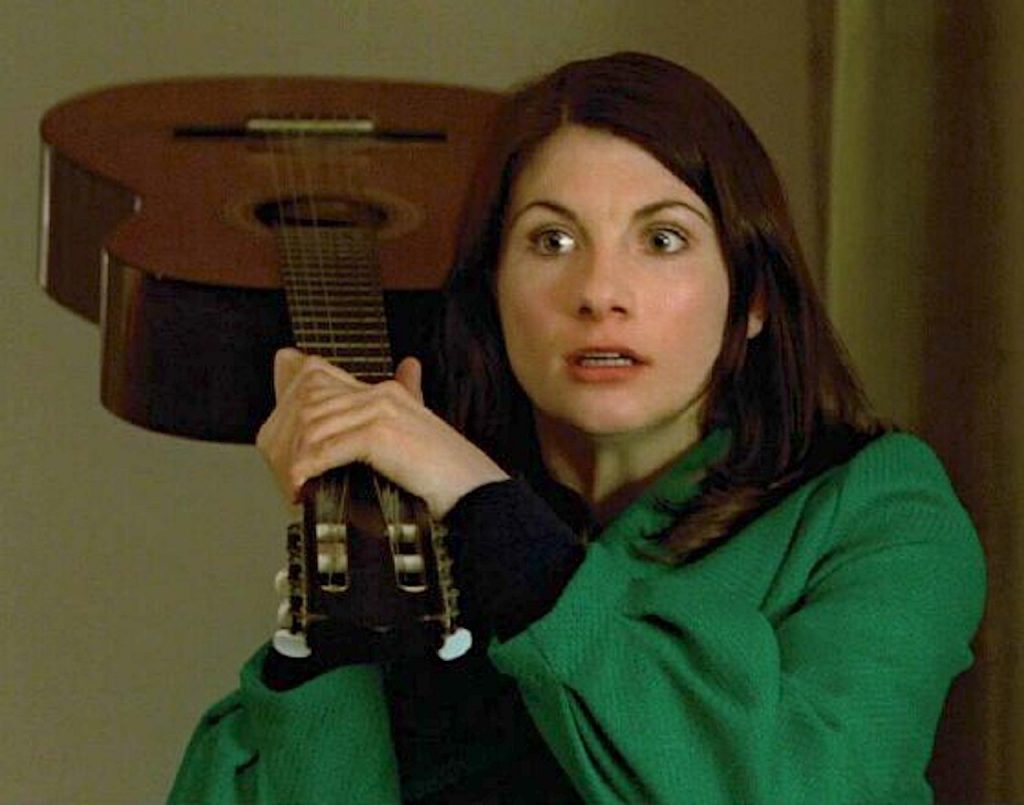- How To Do Foreshadowing Right In Your Screenplay (Part 1)
- How To Do Foreshadowing Right In Your Screenplay (Part 2)
Acceptance
If you want to sell your audience on something that might go against character or be a bit outlandish foreshadowing is the way to go.
In Bullet Train, there’s a highly venomous snake slithering through the storyline. Once we find out that snake venom from a Boomslang snake has caused an entire wedding party to die violently, we accept this almost supernatural occurrence because the assassin who used the snake venom is on the train and of course, she brought her pet. Also, there’s a TV news broadcast that foreshadows the “escaped” snake from a zoo and that makes it doubly solid.

Ladybug (Brad Pitt) in Bullet Train
In Where the Crawdad’s Sing, we are shown nature’s survival techniques which can be apparently brutal, but are only really responsive in kind. Now this concept is more a motif than anything else but it has direct foreshadowing impact on the resolution of the story.
Kay, played by Daisy Edgar-Jones, was raised by nature, survived nature’s sometimes arbitrary pain, and responds in kind when she is threatened. Based on the book, the film purports to make her actions and reactions to the threats she faces reasonable by using this foreshadowing.
You might show your protagonist at a shooting range missing the bullseye and the handsome range guy showing her what she’s doing wrong. He corrects her technique and she now gets much closer to the target. Later, even though it’s been established that she’s new to guns, she hits a threatening suspect dead bang and we can accept it.
Subtle Foreshadowing
In a famous scene from Dirty Harry, Harry pulls a .44 magnum out and proceeds to shoot the bad guys with unerring accuracy. None of this, not the gun nor his skill had been foreshadowed but when that gun comes out of the holster and it’s bigger than anything we’ve ever seen on the screen, we automatically assume he can use it – well.
This is a form of foreshadowing. No one is going to question his skill level when he’s packing heat like that. A lot is assumed by him just owning it and using it as his service revolver.
In the first Star Wars, Princess Leia’s holographic plea effectively tells us a lot about Obi-Wan Kenobi especially since we’ve just seen the formidable Darth Vader. Anyone who is “our only hope” must be a tough dude indeed.

Princess Leia (Carrie Fisher) in Star Wars
Similar subtlety is used in many cop shows when the detective shows up at the scene of a crime. “Vera” is such a disconnect when you see her – frumpy, older, not typical – that you automatically assume she’s capable. Also, the deference she’s shown by other cops is a neat way to say without saying, “This is a formidable mind at work here.”
Many films and TV shows foreshadow the main character by referring to them. “I wonder what Jim is going to do?” “How will Jessica react?” The very nature of worrying or questioning a character’s reaction foreshadows them.
This example is a bit different than the above examples but in the movie The World’s End, the main characters are doing a pub crawl to try to recreate one that they didn’t accomplish decades before. Each pub has a name that foreshadows what they might find inside the various pubs. The first pub is called The First Post; there’s seduction in The Mermaid, The Two-Headed Dog has twins fighting the group, and of course the last pub of the twelve in the Golden Mile is The World’s End.
Visual Or Auditory Foreshadowing
In westerns , the saloon going instantly quiet when the gunfighter walks in is a sure sign that there’s a badass coming through.
People’s eyes popping open or sudden fear across their faces at the mention of someone or something is a great visual way to foreshadow a situation. A dog barking, a phone ringing, a sudden shadow or raging storm – all work.
In Brotherhood of the Wolf, a wolf howl signals death and affects all the characters who hear it because it portends another victim of the beast of Gévaudan.
How many lonely lanes are rife with branches cracking or bushes shuffling? A bad feeling by the character is followed most times by a bad outcome.
In Attack The Block, the nurse played by Jodie Whittaker walks from brightly lighted streets packed with revellers to progressively dark ones passing graffiti on a brick wall that has the names of the street thugs who will eventually mug her. As she jumps when a firework goes off and looks behind her we begin to realize that the area is getting less and less benign. The end result is her coming face to face with the street gang waiting menacingly at the end of an unlighted road.

Sam (Jodi Whittaker) in Attack The Block
A noise in the house. A branch hitting the window. A pair of feet mysteriously walking to a destination. All are foreshadowing to increase suspense.
Hands making a bomb or cleaning a gun. Heavy breathing or no one on the other end of a phone. A tripwire strung across a bike path just waiting for a hapless bicyclist – the list goes on.
These types of foreshadowing create maximum suspense and are used by many, many crime or horror films or TV shows.
Voiceover Foreshadowing
There is no doubt that voice over is over-used these days. In my opinion it’s lazy writing. But there are times when it is a very powerful tool to introduce or foreshadow something or someone.
In Stand By Me, we see Richard Dreyfuss in a very contemplative mood sitting in a jeep in the middle of a country road.
He says:
WRITER (V.O.)
I was twelve going on thirteen first time
I saw a dead human being.
It happened in the summer of nineteen-fifty-nine.
A long time ago.
But only if you measure in terms of years.
This foreshadows the story to come.
In Blade Runner, voice over was added after the fact for the first U.S. release but it was really effective in introducing the character.
Deckard, Harrison Ford, is waiting for a stool at a food place.
DECKARD (V.O.)
Sushi, that’s what my ex-wife called me. Cold fish.
In Goodfellas Henry Hill (Ray Liotta) opens with this bit of voice over that tells you what we’re about to see.
HENRY HILL (V.O.)
Look at me! As far back as I can remember,
I always wanted to be a gangster.
To me, being a gangster was better than
being president of the United States.
These are all examples of how effective foreshadowing to give us a taste of what’s to come using voice over can be.
Conclusion
Foreshadowing is a pretty simple concept. As you write, new ideas may come up, characters assert themselves and/or change. A brilliant idea suddenly comes to you – lucky you – but it comes out of nowhere and it feels unsettling.
Just go back on second draft and work in some foreshadowing and you’re golden.
Whether you plan it or not many things need to be foreshadowed in order to be effective in your story. Plus, judicious use of foreshadowing can create maximum suspense and foreboding at any time.
It can be audio, visual, or some combination but foreshadowing is an integral part of the writer’s tools.

